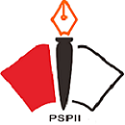Mengembangkan Pendidikan Multikultural dalam Pembelajaran PAI
Abstract
Nowadays multiculturalism becomes an important issue, particularly after a series of conflicts that often occur in this country in recent years. Moving on from the problem, then, initiated a deeper understanding of inclusive, pluralistic, and tolerant becomes a necessity; hopes such cases social conflict leading to anarchy in the name of SARA (Tribe, Religion, Race, Class), and other interests who slipped behind it, is not repeated in the future. These issues are of course not only deals with the problem of how we manage conflict, diversity, and political recognition of the otherness of course. However, more than that, that multiculturalism can be understood as "trust" to normality and acceptance of diversity. For that, one of the most effective ways to cultivate an understanding of a more inclusive, pluralist, and tolerant it is through the learning process. The following article seeks to initiate a deeper understanding of inclusive, pluralistic, and tolerant, through developing multicultural education in learning PAI
Keywords
Full Text:
PDFReferences
Abdul Majid dan Dian Andatani, (2004) Pendidikan Agama Islam Berbasis Kompetensi, Bandung, Remaja Rosdakarya.
Amin Abdullah, (2005) “Kesadaran Multikultural: Sebuah Gerakan Interest Minimalization dalam Meredakan Konflik Sosial”, dalam M. Ainul Yaqin, Pendidikan Multikultural Cross-Cultural Understanding untuk Demokrasi dan Keadilan , Pilar Media,
Yogyakarta.
Azyumardi Azra, (2005) “Pendidikan Agama: Membangun Multikulturalisme Indonesia”, dalam Zakiyuddin Baidhawy, Pendidikan Agama Berwawasan Multikultural, Penerbit Erlangga, Jakarta.
-----------------------, (1999) Pendidikan Islam dan Modernisasi Menuju Millennium Baru, Jakarta, Logos Wacana.
Cristina Allemann-Ghionda, (2001) Sociocultural and Linguistic Diversity, Educational Theory, and the Consequences for Teacher Education: A Comparative Perspective, dalam Carl A.Grant dan Joy L.Lei (editor), Global Constructions Of Multicultural Education Theories and Realities, Lawrence Erlbaum Associates Publishers, London.
Driss Alaoui (editor), (2010) Recherches en Education : Education et formation interculturelles regards critiques, Université de Nantes - UFR Lettres et Langage, Perancis.
H.A.R. Tilaar, (2009), Kekuasaan dan Pendidikan: Manajemen Pendidikan Nasional dalam Pusaran Kekuasaan, Rineka Cipta, Jakarta.
------------------,(2012), Perubahan Sosial dan Pendidikan Pengantar Pedagogik Transformatif untuk Indonesia, Rineka Cipta, Jakarta.
Henry Giroux, (2005), Border Crossing: Cultural Workers and The Politics of Education, Routledge, New York and London.
Jacqueline Jordan Irvine, (2003), Educating Teachers for Diversity, Seeing With a Cultural Eye Teachers College Press, Columbia University New York and London.
Jalaluddin, (1994) Filsafat Pendidikan Islam Konsep dan Perkembangan, Raja Grafindo, Jakarta.
James A. Banks dan Cherry A. Mcgee Banks (eds), (2010) Multicultural Education Issues and Perspectives, Seventh Edition, John Wiley & Sons, Inc, Washington.
Michael Vavrus, (2002), Transforming the Multicultural Education of Teachers Theory, Research, and Practice, Teachers College Press, Columbia University New York and London.
Moh. Roqib, (2011), Ilmu Pendidikan Islam Pengembangan Pendidikan Integratif di Sekolah, Keluarga, dan Masyarakat, LKiS, Yogyakarta.
Muhaimin, (2004), Paradigma Pendidikan Agama Islam, Remaja Rosdakarya, Bandung.
Organisation des Nations Unies pour L’Éducation La Science et La Culture, (2006) Principes directeurs de l‟UNESCO pour l‟éducation interculturelle, a été Publié par UNESCO, Paris, France.
Toto Suharto, (2012) Pendidikan Berbasis Masyarkat Relasi Negara dan Masyarakat dalam Pendidikan, LKis, Yogyakarta.
DOI: http://dx.doi.org/10.24042/atjpi.v7i1.1490
Refbacks
- There are currently no refbacks.
Copyright (c) 2017 Al-Tadzkiyyah: Jurnal Pendidikan Islam

This work is licensed under a Creative Commons Attribution 4.0 International License.

Al-Tadzkiyyah: Jurnal Pendidikan Islam is licensed under a Creative Commons Attribution 4.0 International License. Copyright © UIN Raden Intan Lampung. All rights reserved.








